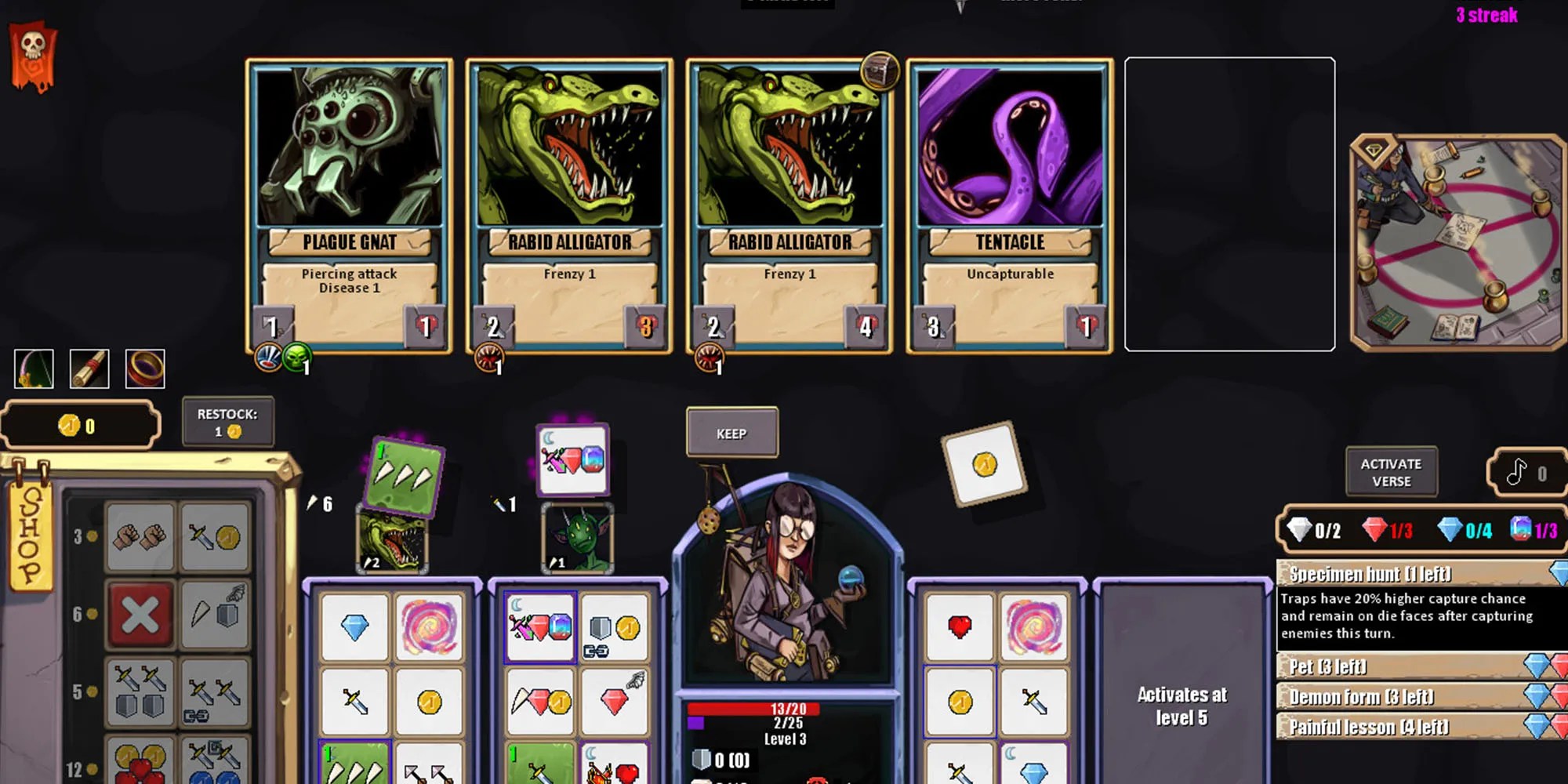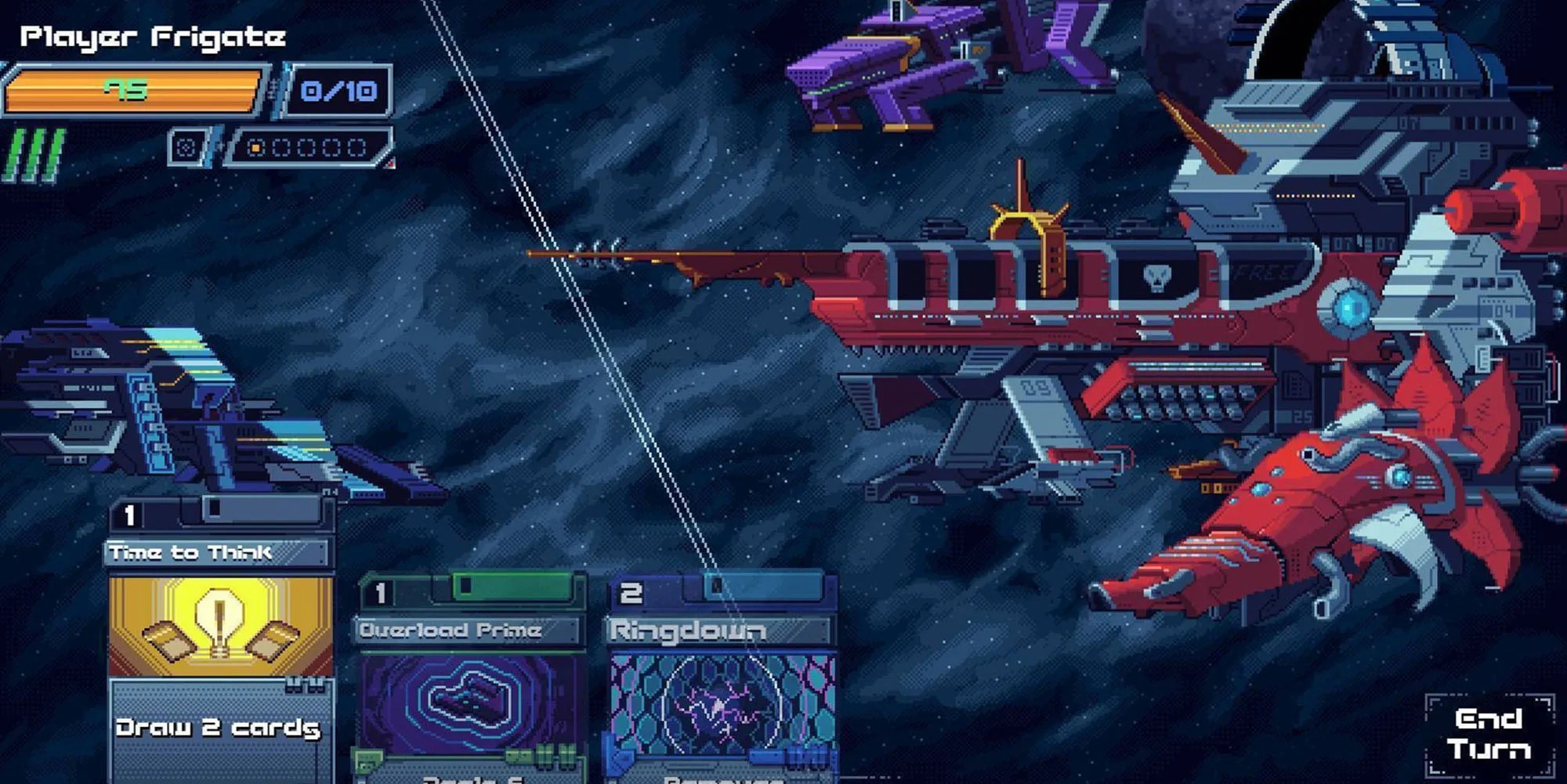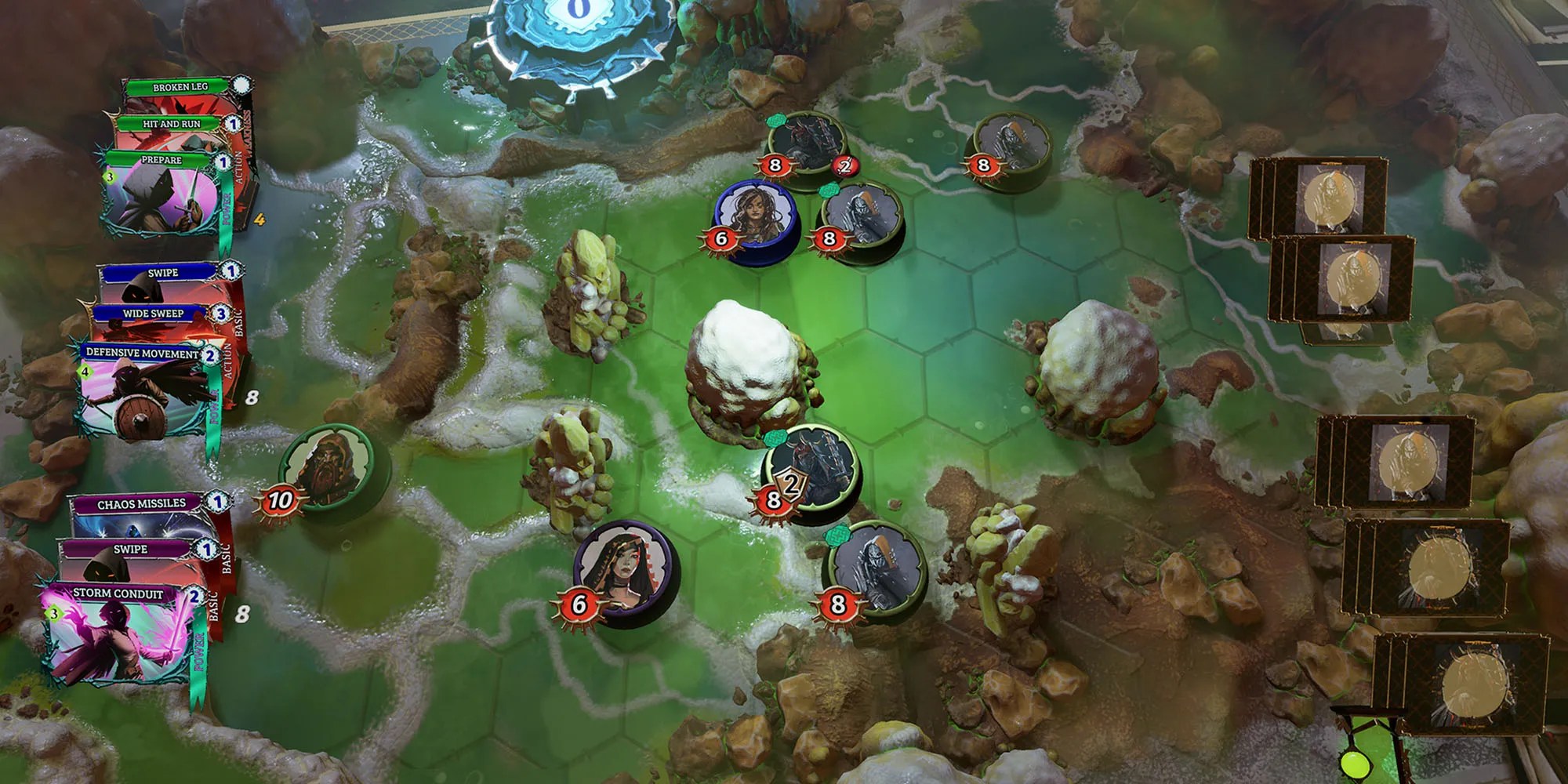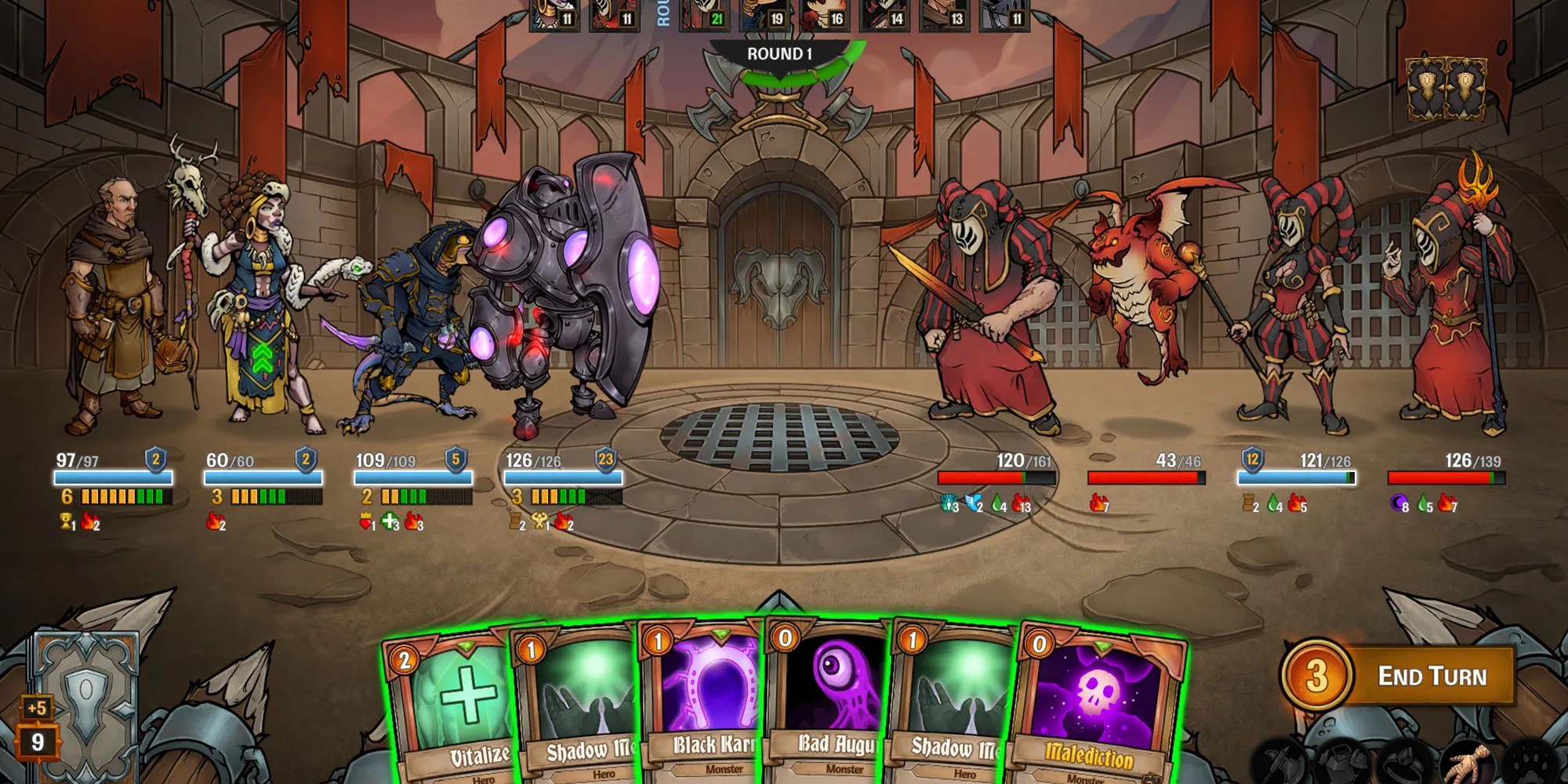Slay the Spireabsolutely didn’t invent the roguelike deckbuilder sub-genre, not by a long shot, but it certainly did cause a large boom with these types of games being made. Nowadays, there’s a pretty substantial list of games that fit into the roguelike deckbuilder genre or at least come close to it, with each one innovating or improving upon the formula in some way.
RELATED:Slay The Spire: The Best Relics For The Watcher Class
There are so many at this point that it can be pretty tough to keep track of them all, both the ones already outand the ones coming soon.So, let’s take a look at some of the lesser-known deckbuilder games that people should absolutely be aware ofin preparation for the “Going Rogue” Steam Sale.
7Fights In Tight Spaces
First up isFights in Tight Spaces,likely the game on here that people have the highest chance of knowing. This is a game that literally allows people to build and live through their ownJohn Wick-esque hand-to-hand action movie fight scenes.
But, instead of pressing buttons to attackin a chaotic blast similar toHades,players use a deck of cards they build over the course of a run to attack, defend, and avoid enemies in different scenarios. This game incorporates aspects from deckbuilders, roguelikes, RPGs, turn-based battlers, and even a bit from fighting games. Not only is the actual gameplay ofFights in Tight Spacesa ton of fun, but it’s so satisfying watching the combat play out, as it’s clear that developers Ground Shatter put the work in to make this game as visually appealing as possible.

6Circadian Dice
Whereassomething likeDicey Dungeonfeels like a roguelike game with dice thrown in,Circadian Diceis a recently released game that feels like a deckbuilder that substitutes dice for cards. Basically, instead of building up a “deck” throughout the course of a run by adding or removing cards, players will pick different actions to put on the different faces of multiple dice.
It’s a straightforward game visually, with most of its gameplay taking place on a single screen, but the overall gameplay and moment-to-moment action ofCircadian Diceis anything but simple, in the best of ways. There are a ton of characters to play, hundreds of different ways to approach each fight, and likely more content on the horizon, given that the game was recently released in July of 2022.

5Active DBG: Brave’s Rage
Active DBG: Brave’s Rageis another game that hasn’t been out for long, so it hasn’t really hit the radar for tons of deckbuilder roguelike fanatics yet. Additionally, it’s Early Access, and it’s clear the devs have a good number of things to add, fix, and patch. Still, for what the product currently is,Brave’s Rageis an incredibly interesting deckbuilder.
ISVR, the Beijing-based developers of this game, have somehow managed to add active combat into a genre where careful thought before each turn is a given, yet it works surprisingly well.

RELATED:Slay The Spire: The Best Relics For The Defect Class
To further explain this game’s “Active Combat”, players are required to play their cards at very specific times in order to deal the most damage, perfectly block an attack, or interrupt an approaching enemy. And, rather than drawing a card each “turn”, card draws are on a timed cooldown instead. When all of these aspects come together in combat,Brave’s Ragehas players switching between characters, unleashing ultimate attacks, interrupting enemies, and more all in the span of a few seconds.
4For The Warp
For the Warpis the perfect game for anyone who loved the space-adventure theme ofFaster Than Lightas well the combat ofSlay The Spire-type deckbuilders. This game is pretty simple, the player picks a ship that essentially functions as their “character” or “class”, with each one having a different starting deck and innate bonuses. Then, they head out into the grid-based map to fight against enemy ships, shop at space markets for new cards, or a variety of other unique events.
At its core,For the Warpis a simpler deckbuilder that has a lot of depth but the more complicated aspects are each enough to learn. Additionally, the game also has a ramping New Game+ system every time the player manages to make it through a run, so there are hundreds of hours of content to experience here.

3Trials of Fire
Up next is a game that deckbuilder fanatics already likely know about, but the general gaming audience has probably never heard of.Trials of Fireis a roguelike deckbuilderparty-based RPGwith a fantastic storybook-esque UI design and some truly impressive visuals. For anyone who has played something likeHand of Merlin, the two games are similar enough to compare.
RELATED:Games To Play If You Loved Inscryption

Both titles feature a variety of unlockable characters, and starting decks/traits, and require a good amount of time investment for a single run. That said,Trials of Fireseparates itself from other similar titles in a few key ways thanks to its tile-based combat, storybook-esque UI design,and a surprising amount of lore.
2Battle Bands: Rock & Roll Deckbuilder
There are only two deckbuilder roguelikeson here with any sort of co-op multiplayer, andBattle Bandsis one of them. But, among the two co-op experiences,Battle Bandsis more unique in its approach. Whether it’s the fact that players aren’t constantly waiting for their turn, the ability to share energy between players in a band, or the goal being to please the crowd rather than take the enemy’s life,Battle Bandsjust excels at what it attempts.
While the deckbuilder aspects of the game are a bit simpler compared to other games on this list, the ability for PvE, PvP, and even tournaments with this game more than makes up for this bit of simplicity and givesBattle Bandsa unique place in the deckbuilder genre.

1Across The Obelisk
Across The Obeliskis a bit of a unique inclusion because technically, every run can be incredibly similar if the player makes it that way. This is becauseAcross the Obelisk’s campaign (not its roguelike mode) has multiple maps with the same events always appearing at certain spots. That said, the random events, cards offered after each battle, results of chance events, and more all wildly range from run to run.
Additionally,Across the Obeliskis another co-op game, with up to four players being able to join one run and take control of one of the four characters in the party. Each player is responsible for their character(s)' turns, decks, damage, and life. While the co-op runs can drag a bit because of how often players will be waiting for each other to finish their turns, the overall experience is still a ton of fun and something completely unique to the deckbuilder genre.
